ছৈয়দ শাহরিয়ার হাসান বর্তমানে জাপানের Japan Advanced Institute of Science and Technology (JAIST)-এ ইনফরমেশন সায়েন্স বিষয়ে মাস্টার্স করছেন, যেখানে তিনি MEXT Scholarship-এর অধীনে গবেষণায় নিয়োজিত আছেন। এর আগে তিনি International Islamic University Chittagong (IIUC) থেকে ইলেকট্রিক্যাল ও ইলেকট্রনিক ইঞ্জিনিয়ারিংয়ে স্নাতক সম্পন্ন করেন।
শিক্ষাজীবনের পাশাপাশি তিনি IIUC-তে Adjunct Faculty এবং Teaching Assistant হিসেবে কাজ করেছেন। তিনি IEEE IIUC Student Branch-এর ট্রেজারার এবং Hult Prize at IIUC-এর Campus Director ও Head of Brand Marketing হিসেবে সক্রিয়ভাবে নেতৃত্ব দিয়েছেন।
বর্তমানে তাঁর গবেষণা Density Functional Theory (DFT) এবং Perovskite-based materials নিয়ে, যা নবায়নযোগ্য শক্তি এবং টেকসই উপকরণবিজ্ঞানে নতুন দিগন্ত উন্মোচন করছে। তিনি মূলত কম্পিউটেশনাল মডেলিং ও থিওরিটিক্যাল ম্যাটেরিয়াল সায়েন্স নিয়ে কাজ করছেন, যা ভবিষ্যতের সৌরশক্তি উৎপাদন ও সবুজ প্রযুক্তিতে গুরুত্বপূর্ণ ভূমিকা রাখতে পারে।
💬 প্রশ্নোত্তর পর্ব:
প্রশ্ন: আপনার গবেষণার যাত্রা কীভাবে শুরু হলো?
উত্তর: গবেষণার শুরুটা হয় স্নাতক দ্বিতীয় বর্ষ থেকেই। তখন গবেষণা সম্পর্কে ধারণা সীমিত ছিল, কিন্তু জানার আগ্রহ ছিল প্রবল। ক্যাম্পাসে সৌর শক্তি থেকে বিদ্যুৎ সরবরাহের একটি প্রজেক্ট নিয়ে কাজ করতে গিয়ে গবেষণার প্রতি আগ্রহ জন্মে। যদিও প্রকল্পটি প্রকাশিত হয়নি, তবে এখান থেকেই গবেষণার পথে আমার যাত্রা শুরু হয়। পরবর্তীতে জার্নাল ও কনফারেন্স পেপার প্রকাশের মাধ্যমে গবেষণায় আত্মবিশ্বাস বাড়ে।
প্রশ্ন: JAIST-এ MEXT স্কলার হিসেবে পড়াশোনা করা কেমন অভিজ্ঞতা?
উত্তর: MEXT স্কলারশিপ আমার গবেষণাজীবনের জন্য একটি বড় আশীর্বাদ। এটি আমাকে পূর্ণ মনোযোগে গবেষণায় যুক্ত থাকতে সহায়তা করেছে। বাংলাদেশে যেই গবেষণায় দুই মাস লেগেছে, জাপানে সেটি করতে আমার সময় লেগেছে মাত্র ১৫ থেকে ২০ মিনিট—এই পার্থক্যই দুটি দেশের গবেষণা অবকাঠামোর ফারাক বোঝায়।
প্রশ্ন: আপনার বর্তমান গবেষণা কোন ক্ষেত্রে কেন্দ্রীভূত?
উত্তর: আমি ইনফরমেশন সায়েন্স বিভাগের অন্তর্গত হলেও আমার গবেষণা মূলত থিওরিটিক্যাল ম্যাটেরিয়াল সায়েন্স-কে কেন্দ্র করে। আমি এমন নতুন উপাদান খুঁজে বের করার চেষ্টা করছি যা সৌরশক্তি উৎপাদনে আরও কার্যকর, পরিবেশবান্ধব ও টেকসই হবে।
প্রশ্ন: বাংলাদেশের গবেষকদের সঙ্গে আপনার সহযোগিতা কীভাবে শুরু হয়েছিল?
উত্তর: আমি বাংলাদেশের বিভিন্ন বিশ্ববিদ্যালয়ের শিক্ষক, বন্ধু ও জুনিয়র গবেষকদের সঙ্গে কাজ করি। এই সহযোগিতাগুলো মূলত আইডিয়া শেয়ারিং ও পারস্পরিক শেখার মাধ্যমে শুরু হয়েছে। একসঙ্গে কাজ করার ফলে জ্ঞান-বিনিময়ের একটি সুন্দর পরিবেশ তৈরি হয়।
প্রশ্ন: বিদেশে পড়াশোনার সবচেয়ে বড় চ্যালেঞ্জ কী ছিল?
উত্তর: শুরুতে ভাষা, সংস্কৃতি ও গবেষণার মানদণ্ডের পার্থক্য আমাকে কিছুটা বিভ্রান্ত করেছিল। তবে আমি এসব চ্যালেঞ্জকে শেখার সুযোগ হিসেবে নিয়েছি এবং ধীরে ধীরে নিজেকে মানিয়ে নিয়েছি। ইতিবাচক মনোভাব ও আত্মবিশ্বাস ধরে রাখা ছিল মূল কৌশল।
প্রশ্ন: পেরোভস্কাইট ও DFT-ভিত্তিক গবেষণা কেন গুরুত্বপূর্ণ?
উত্তর: DFT আমাদেরকে অল্প খরচে এবং দ্রুত সময়ে কোনো উপাদানের ইলেকট্রনিক ও অপটিক্যাল বৈশিষ্ট্য বিশ্লেষণ করতে সাহায্য করে। বিশেষ করে Perovskite materials নবায়নযোগ্য শক্তি উৎপাদনের ক্ষেত্রে বিপ্লব আনতে পারে। বাংলাদেশের তরুণ গবেষকদের জন্য এটি একটি আদর্শ ক্ষেত্র, কারণ এতে বড় অবকাঠামোর প্রয়োজন নেই, শুধু কম্পিউটেশনাল দক্ষতা ও কৌতূহলই যথেষ্ট।
প্রশ্ন: IEEE ও Hult Prize-এর সঙ্গে যুক্ত থাকার অভিজ্ঞতা গবেষণায় কীভাবে সহায়ক হয়েছে?
উত্তর: এই সংগঠনগুলো আমাকে নেতৃত্ব, টিমওয়ার্ক ও যোগাযোগের দক্ষতা শিখিয়েছে। বিভিন্ন সেমিনার ও ওয়ার্কশপে অংশগ্রহণ করে নতুন ধারণা পাওয়া এবং সমস্যা সমাধানে সৃজনশীলতা অর্জন করতে পেরেছি।
প্রশ্ন: তরুণ গবেষকদের জন্য আপনার পরামর্শ কী হবে?
উত্তর: স্বপ্ন দেখুন, এবং সেই স্বপ্ন বাস্তবায়নে অধ্যবসায় ও ধৈর্য ধরে কাজ করুন। শুধু ব্যক্তিগত সাফল্য নয়, গবেষণার মাধ্যমে সমাজ ও দেশের কল্যাণে কীভাবে অবদান রাখা যায়, সেটাই ভাবুন। ব্যর্থতাকে শেখার সুযোগ হিসেবে গ্রহণ করুন।
🔗 প্রোফাইল লিংক:
Google Scholar
LinkedIn
ছৈয়দ শাহরিয়ার হাসান সেই তরুণ গবেষকদের একজন, যাঁরা বাংলাদেশকে আন্তর্জাতিক গবেষণার মানচিত্রে নতুনভাবে উপস্থাপন করছেন। সৌরশক্তি ও টেকসই উপকরণবিজ্ঞানে তাঁর DFT-ভিত্তিক গবেষণা ভবিষ্যতের সবুজ প্রযুক্তিতে গুরুত্বপূর্ণ ভূমিকা রাখবে বলে আশা করা যায়।
বিজ্ঞানী অর্গ টিম তাঁর ভবিষ্যৎ গবেষণার সাফল্য কামনা করছে এবং বিশ্বাস করে তাঁর যাত্রা বাংলাদেশের তরুণদের জন্য অনুপ্রেরণার উৎস হয়ে থাকবে।
Searching for future energy in sunlight – Bangladeshi young scientist Syed Shahriar Hasan
Sayed Sahriar Hasan is a graduate student at the Japan Advanced Institute of Science and Technology (JAIST), pursuing a master’s degree in Information Science under the prestigious MEXT Scholarship. Originally from Chattogram, Bangladesh, he completed his Bachelor of Science in Electrical and Electronic Engineering (EEE) at the International Islamic University Chittagong (IIUC).
Before joining JAIST, Hasan served as an Adjunct Faculty and Teaching Assistant at IIUC, contributing to academic development while continuing his research interests. He has also been an active member and leader in student organizations such as the IEEE IIUC Student Branch (Treasurer) and the Hult Prize at IIUC (Campus Director and Head of Brand Marketing).
His current research focuses on Density Functional Theory (DFT) and Perovskite-based materials—computational studies aimed at discovering efficient, sustainable materials for solar energy generation. By combining materials science and computational modeling, Hasan’s work seeks to advance renewable energy technologies for a more sustainable future.
💬 Q&A Session:
Q: How did your research journey begin?
A: It started during my second year of undergraduate studies. I didn’t fully understand what research meant back then, but I was eager to learn. I began a project to power our university campus using solar energy, aiming to reduce costs and even supply excess power to the national grid. Although that project was never published, it sparked my passion for research. Soon after, I published my first journal and conference papers, which encouraged me to pursue research more seriously.
Q: How has your experience been as a MEXT scholar at JAIST?
A: Receiving the MEXT scholarship was a true blessing—it allowed me to focus entirely on my research without financial worries. The difference between Bangladesh and Japan in terms of research infrastructure is remarkable. For example, a project that took me two months to complete in Bangladesh took only about fifteen minutes at JAIST. This efficiency comes from the advanced facilities and structured research environment in Japan.
Q: What is the main focus of your current research?
A: Although I belong to the Information Science department, my work mainly focuses on theoretical materials science. I study new materials that could improve solar energy generation while being sustainable and environmentally friendly. My goal is to identify materials that are cost-effective, durable, and capable of driving green innovation.
Q: You’ve collaborated with several Bangladeshi researchers. How did those partnerships form?
A: Many of my collaborators are friends, juniors, or professors from Bangladesh. Our collaborations often start through academic interest, shared curiosity, and institutional agreements. Working together helps us exchange ideas and broaden our understanding.
Q: What has been your biggest challenge studying and researching abroad?
A: The biggest challenge was adapting to a new environment and understanding Japan’s academic culture. The language barrier, research methodology, and work pace were initially difficult. But I viewed these as opportunities to learn. Over time, I adapted by maintaining consistency, staying positive, and building strong communication within my lab.
Q: Why is DFT-based perovskite research important for young scientists in Bangladesh?
A: Density Functional Theory (DFT) allows researchers to explore the electronic, optical, and thermal properties of materials with minimal cost and time. Perovskite materials, in particular, hold great promise for renewable energy. Since DFT-based work mainly requires computational resources, young researchers in Bangladesh can contribute to world-class research even with limited infrastructure. It’s an ideal field to begin a global research journey.
Q: How did your leadership experiences with IEEE and Hult Prize help your research career?
A: My involvement with IEEE and Hult Prize taught me leadership, teamwork, and communication skills. Participating in workshops and seminars expanded my perspective and inspired creative problem-solving approaches—skills that are essential for any researcher.
Q: What advice would you give to young Bangladeshi students aspiring to study or research abroad?
A: Dream big, and pursue your goals with determination, patience, and integrity. Don’t just focus on personal success—think about how your research can benefit your community, your country, and the world. Accept challenges and failures as opportunities to grow. Every experience will shape you into a more capable and insightful researcher.
🔗 Profile Links:
Google Scholar
LinkedIn
Sayed Sahriar Hasan represents a new generation of Bangladeshi scientists making their mark in international research. His work on DFT-based perovskite materials bridges the gap between theoretical science and real-world renewable energy solutions.
The biggani.org team extends its warmest wishes to Mr. Hasan for continued success. His passion, discipline, and forward-looking research serve as an inspiration to young scientists in Bangladesh and beyond.
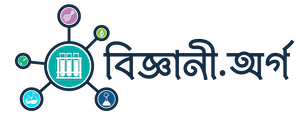
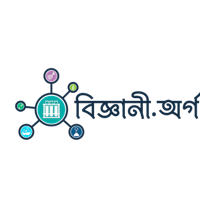
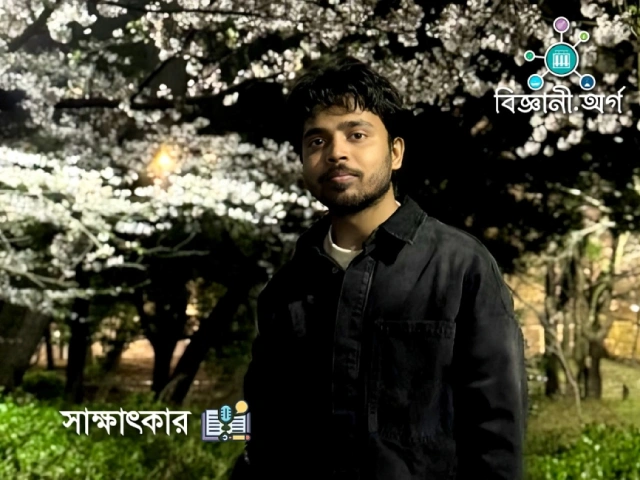

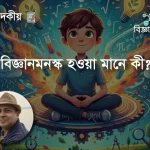

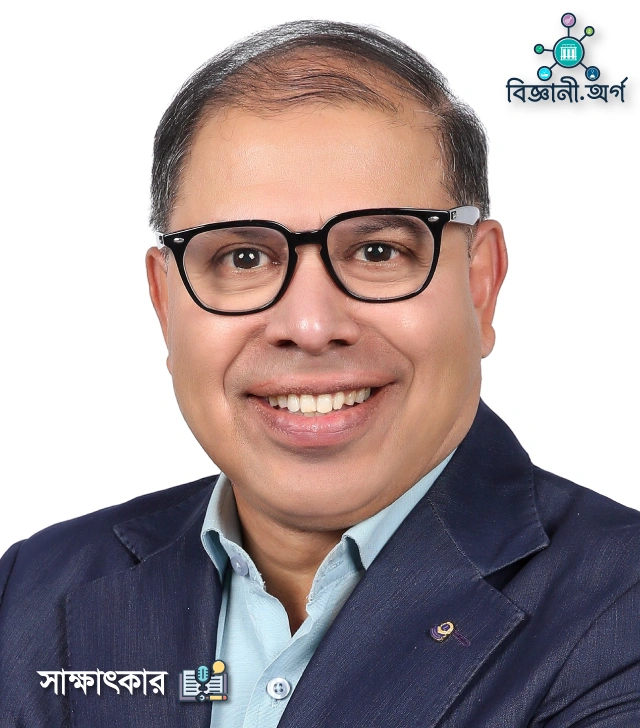
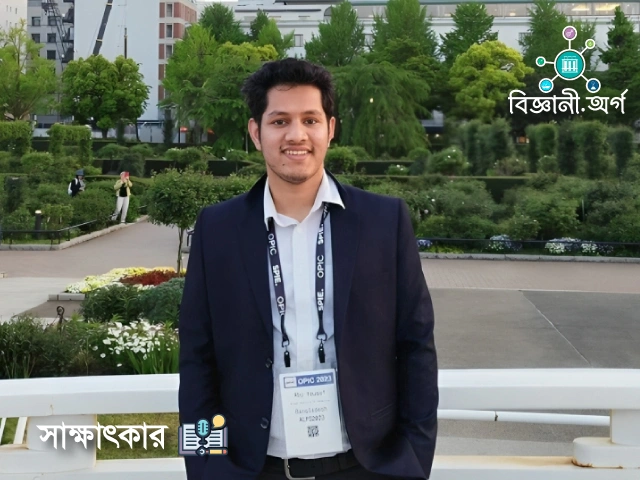
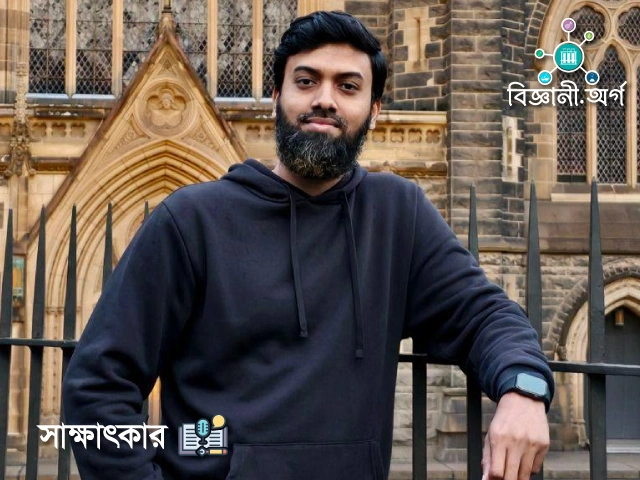
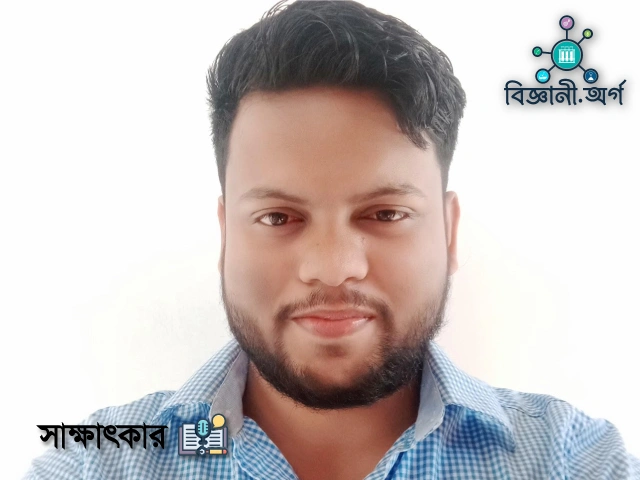
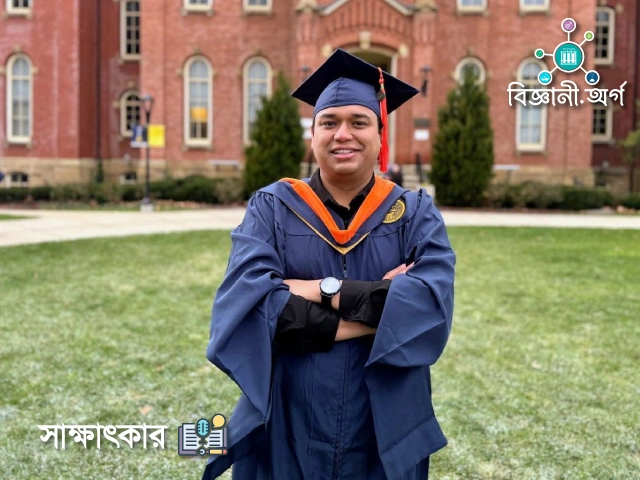
Leave a comment